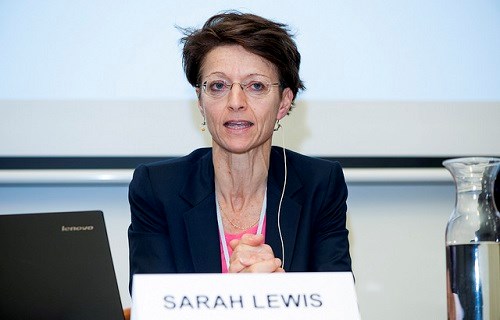Agenda 2020: Solid commitment or PR exercise?

Sarah Lewis, Secretary General, FIS. Photo: Thomas Søndergaard/Play the Game
28.10.2015
By Marcus HoyAccording to the IOC, Agenda 2020 will reduce costs in a number of ways and decrease the number of bidding presentations. Under the new process, the IOC will invite potential candidate cities to present a specific bid suited to their particular long term needs. A new “invitation phase” will allow the Olympic body to offer advice to cities that are considering whether to bid. Cities will be encouraged to make use of existing venues whenever possible.
A new, more flexible model will also allow sports to be held outside the host city and even potentially outside the host nation. Popular local sports will also be considered for inclusion. Limits will be placed on accreditation for coaches and other athletic support staff to ensure that the games do not continue to grow larger.
Sarah Lewis, Secretary General of the International Ski Federation (FIS) spoke out in support of the reforms, which, she said, will positively affect the bidding process. The IOC had recognised that the existing process needed fundamental change, she said, and the measures would reduce costs to bidding cities, promote infrastructure, sustainability and streamline the entire process. While the new plan needed time to be worked on, Lewis said, its critics should hold their fire until its full impact was felt.
“Not a revolution”
However, Play the Game delegates queued up to criticise the measures. Naomi Westland, Media Manager, Sport and Human Rights at Amnesty International, pointed out that that the IOC’s new host city contracts did not include a specific passage on respecting human rights, and requirements on labor rights were also lacking.
“With Agenda 2020, you could conclude that the IOC was looking for a quick PR win,” she said. Hans Bruyninckx, Executive Director of the European Environment Agency criticised the fact that Agenda 2020 contains no concrete environmental targets or deadlines.
“This is a kind of free-floating engagement,” he said.
Andreas Selliaas, an independent researcher and blogger from Norway, was also strongly critical of Agenda 2020, describing it as “reactive as opposed to proactive”. Selliaas argued that the new ‘closed bid’ rules would will lead to a less transparent and more secretive bidding process. Furthermore, he said, the plan to allow popular local sports to be included in a host city’s games would lead to conflicts with sporting bodies over which sports would be excluded to make way.
The measure could lead to sports organisations lobbying IOC members to ensure their sports were not excluded, he said. Virtually no debate on Agenda 2020 took place before its approval at the 2014 IOC congress in Monaco, he pointed out.
“In my opinion, people weren’t too interested in debating it,” Selliaas said. “This is not a revolution."





